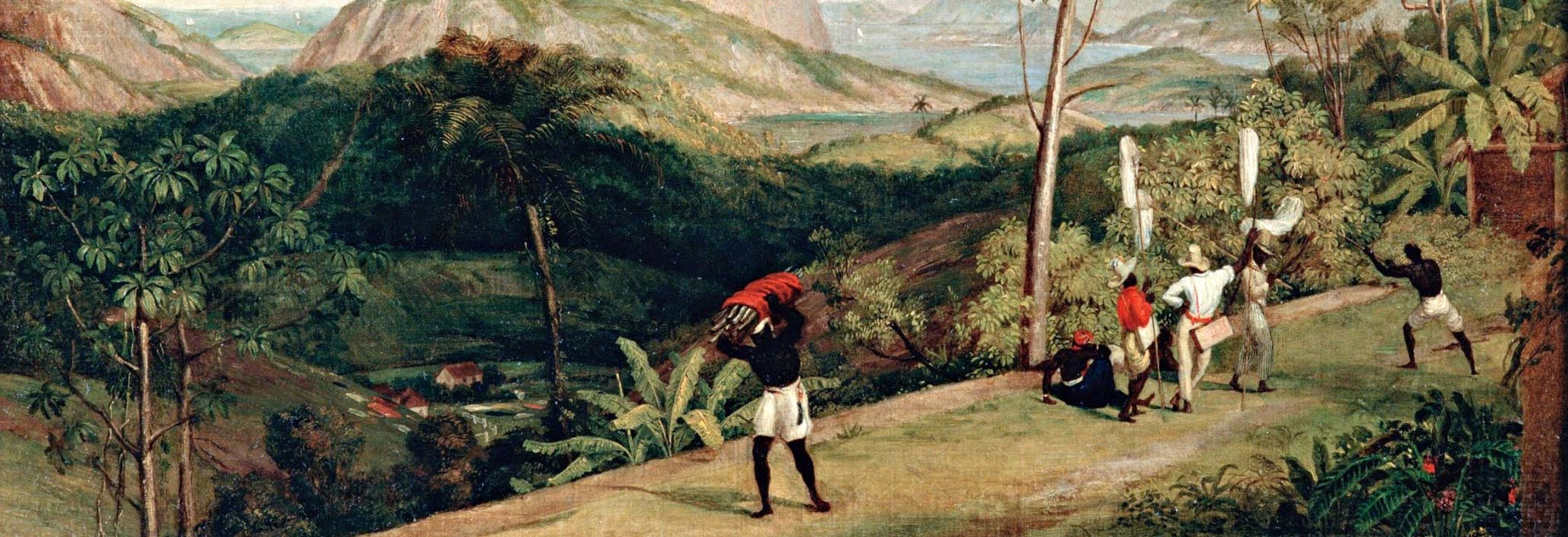Antônio Vieira da Costa was a liberto (freed person), gold miner, farmer, and field commander of the pardo (mixed-raced) militia of Sabará in the captaincy of Minas Gerais, Brazil, during the 18th Century.
Costa was born enslaved in Passagem de Mariana in southeastern Brazil. His father was a wealthy Portuguese miner and his mother was a Yoruba-speaking West African slave. Rather than performing manual labor like most slaves, he learned to read and write and helped to manage his father’s estate. Along with his seven siblings, Costa was declared free and named an heir in his father’s will.
Manumission came at his father’s death in 1760. Two days prior, Costa had purchased his father’s entire estate (including mining plots, farms, townhouses, and 391 slaves) in partnership with his godfather. This was a common strategy families in colonial Brazil used to avoid property losses caused by a member’s death.
Between 1760 and 1796, Costa invested in cattle ranches and African slaves to diversify and maintain the productivity of his fortune. The size and value of his estate at the time of his death attests to the success of his efforts and is representative of the shift away from gold mining and toward slave-based production of foodstuff for internal markets in late colonial Minas Gerais.
Costa was appointed captain and later field commander of the pardo militia of Sabará. The militias were expanded in 1766 from white men only to include pardos (colored men) and pretos (blacks), resulting in regiments organized by these categories. In 1780 the governor of Minas Gerais began appointing field commanders to each regiment. Costa’s nomination as field commander signaled his prominence in local society. The crown’s confirmation of his rank, moreover, allowed him to enjoy privileges and some of the prestige reserved for the officer class.
Antônio Vieira da Costa died with no appointed heirs in 1796. He was a wealthy man, the owner of plots of land, mining sites, three large farms, three cattle ranches, and 143 slaves. Costa had also been a central figure within a social circle of free and freed persons of African descent. His wealth and influence, however, did not exempt him from being categorized by his ancestry and skin color. When he was appointed to the highest rank within the local militia, Costa’s authority extended only to those who shared his mixed African and European ancestry. His economic success, while extraordinary for a freed slave, did not challenge the institutional and social categories that framed hierarchical relationships in colonial Brazil.
Bibliography
Bergad, Laird. Slavery and the Demographic and Economic History of Minas Gerais, Brazil, 1720–1888. Cambridge: Cambridge University Press, 1999.
Dantas, Mariana. "Costa, Antônio Vieira da." Dictionary of Caribbean and Afro-Latin American Biography , edited by Ed. Franklin W. Knight. , edited by and Henry Louis Gates Jr.. . Oxford African American Studies Center, http://www.oxfordaasc.com/article/opr/t456/e558 (accessed Thu Sep 05 11:31:32 EDT 2019).
Lewin, Linda. Surprise Heirs. Vol. 1: Illegitimacy, Patrimonial Rights, and Legal Nationalism in Luso-Brazilian Inheritance, 1750–1821. Stanford: Stanford University Press, 2003.
Mello, Christiane Figueiredo Pagano. Forças Militares no Brasil Colonial: Corpos Auxiliares e de Ordenanças na segunda metade do Século XVIII. Rio de Janeiro: Editoria E-Papers, 2009.
Russell-Wood, A. J. R. Slavery and Freedom in Colonial Brazil. Oxford: Oneworld, 2002.
Author
Mariana Dantas
Adapted by
James Almeida and Steven J. Niven
Contributing Institutions
Hutchins Center for African & African American Research, Harvard University, Cambridge, MA.
Oxford University Press (USA) African American Studies Center.





